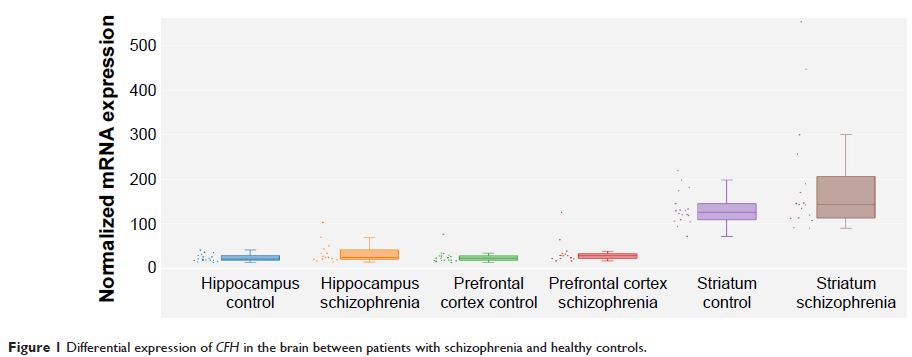109568
论文已发表
注册即可获取德孚的最新动态
IF 收录期刊
- 3.4 Breast Cancer (Dove Med Press)
- 3.2 Clin Epidemiol
- 2.6 Cancer Manag Res
- 2.9 Infect Drug Resist
- 3.7 Clin Interv Aging
- 5.1 Drug Des Dev Ther
- 3.1 Int J Chronic Obstr
- 6.6 Int J Nanomed
- 2.6 Int J Women's Health
- 2.9 Neuropsych Dis Treat
- 2.8 OncoTargets Ther
- 2.0 Patient Prefer Adher
- 2.2 Ther Clin Risk Manag
- 2.5 J Pain Res
- 3.0 Diabet Metab Synd Ob
- 3.2 Psychol Res Behav Ma
- 3.4 Nat Sci Sleep
- 1.8 Pharmgenomics Pers Med
- 2.0 Risk Manag Healthc Policy
- 4.1 J Inflamm Res
- 2.0 Int J Gen Med
- 3.4 J Hepatocell Carcinoma
- 3.0 J Asthma Allergy
- 2.2 Clin Cosmet Investig Dermatol
- 2.4 J Multidiscip Healthc

CFH 基因对精神分裂症症状严重程度的影响
Authors Zhang C, Lv QY, Fan WX, Tang W, Yi ZH
Received 10 January 2017
Accepted for publication 13 February 2017
Published 2 March 2017 Volume 2017:13 Pages 697—706
DOI https://doi.org/10.2147/NDT.S132108
Checked for plagiarism Yes
Review by Single-blind
Peer reviewers approved by Prof. Dr. Roumen Kirov
Peer reviewer comments 2
Editor who approved publication: Professor Wai Kwong Tang
Objective: Recent advances have provided compelling evidence for the role of
excessive complement activity in the pathophysiology of schizophrenia. In this
study, we aimed to detect the association of the gene encoding complement
factor H (CFH ), a regulator in complement
activation, with schizophrenia.
Materials and methods: A sample of 1783 individuals with or without
schizophrenia was recruited for genetic analysis. Genomic DNA samples were
extracted from peripheral blood cells using multiplex polymerase chain reaction
and the SNaPshot assay. A Database for Schizophrenia Genetic Research (SZDB)
was used to detect the association of brain CFH expression with schizophrenia. Next,
we performed a genotype–phenotype analysis to identify the relationship between CFH Y402H polymorphism and clinical
features of schizophrenia.
Results: There was a significant association of hippocampal CFH expression with schizophrenia (P =0.017), whereas this
significance did not survive after adjusting for false discovery rate (P =0.105). Comparing the genotype
and allele frequencies of the genotyped single-nucleotide polymorphisms between
case and control groups showed no significant difference. There were
significant differences in the scores of negative symptoms and delayed memory
between the patients with C allele and those without C allele (P <0.01 and P =0.04 after
Bonferroni correction, respectively). Furthermore, we observed a marginally
significant association between the Y402H polymorphism and CFH expression in the hippocampus (P =0.051); however, this
significance was lost after multiple testing correction (P =0.51, after Bonferroni
correction).
Conclusion: Our findings provide suggestive evidence for the role
of CFH in the development of negative
symptoms and cognitive dysfunction in schizophrenia.
Keywords: complement factor H, negative
symptoms, cognitive dysfunction, hippocampus, schizophrenia
